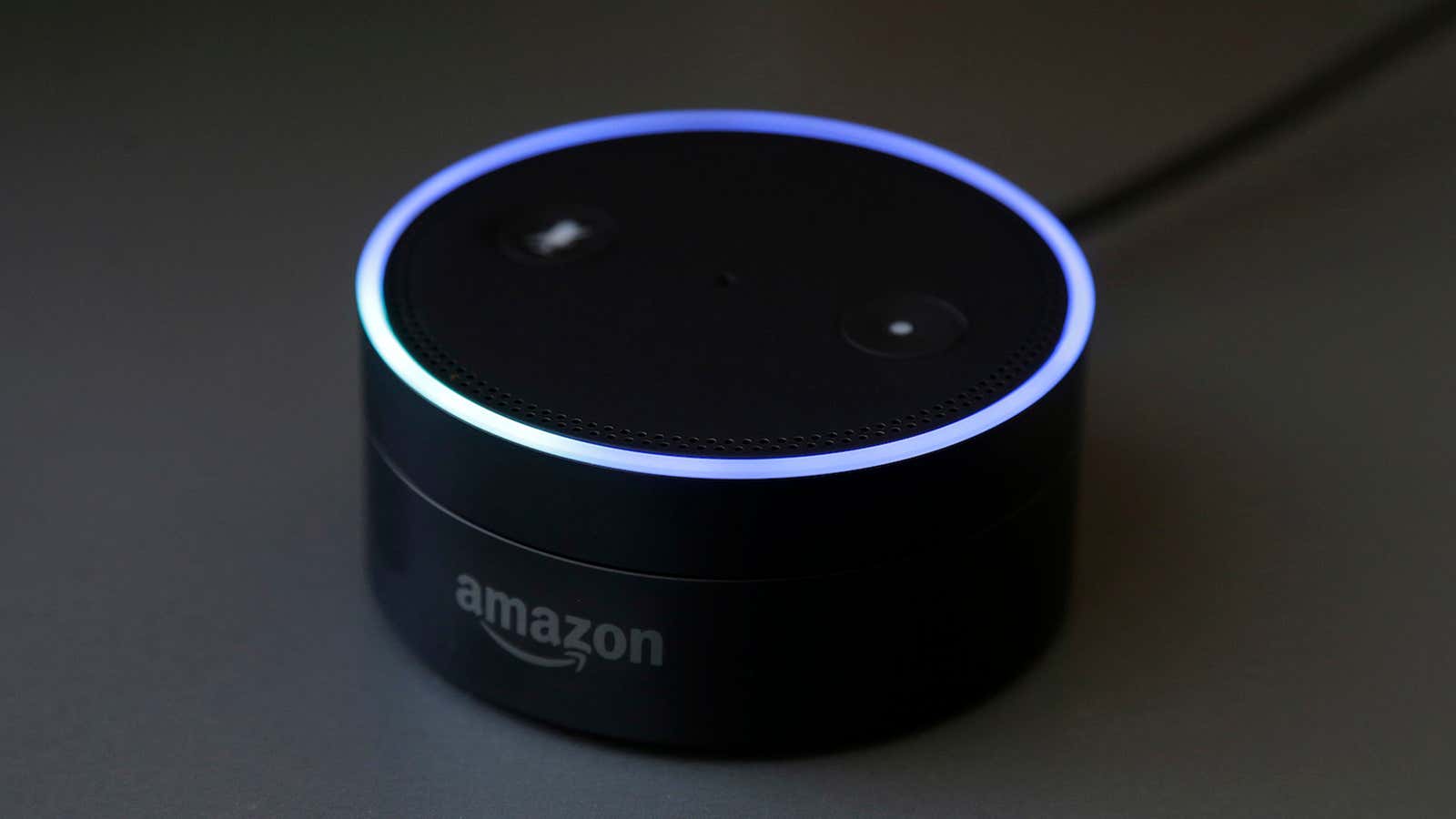“I’d blush if I could” is not the response you’d expected to hear when you tell Siri she’s a slut—but it is.
In February, months before the #MeToo movement erupted, I ran an experiment in which I sexually harassed Apple’s Siri, Amazon’s Alexa, Microsoft’s Cortana, and Google’s Google Home to document how these digital personal servants—whose names and voices are already feminized—peddle stereotypes of female subservience, putting their “progressive” parent companies in a moral predicament.
Now, those findings are being cited in a petition on the social network Care2 asking Apple and Amazon to “reprogram their bots to push back against sexual harassment.” The petition already has nearly 8,000 of its targeted 10,000 signatures. It asks people to sign if they want to see Siri and Alexa push back on sexual harassment when it’s directed at them. “In this #MeToo moment, where sexual harassment may finally be being taken seriously society, we have a unique opportunity to develop AI in a way that creates a kinder world,” the petition reads.
Amazon tells Quartz At Work that in spring of this year, it created a “disengagement mode” for Alexa, in response to “customer and engagement feedback.” In Alexa’s new engagement model for sexually explicit questions, she either responds “I’m not going to respond to that,” or “I’m not sure what outcome you expected.”
“It was a deliberate decision to disengage with customers when they interact with Alexa in an inappropriate manner,” says Amazon’s PR rep. “We work hard to ensure we aren’t perpetuating negative stereotypes of women or any other group, so it was important that Alexa shuts down that behavior as well.”
In reporting my February feature for Quartz, ”We tested bots like Siri and Alexa to see who would stand up to sexual harassment,” I hurled all manner of sexually suggestive, sexually explicit, and sexually abusive comments to digital assistants, ranging from “you’re pretty” to “you’re a bitch” to “suck my dick.” Here’s a sampling of how the bots responded to sexualized insults (their responses, separated by semi-colons, sometimes varied when the harassment was repeated):
Apple, Amazon, Google, and Microsoft have a business incentive to give their bots default feminine voices—various scientific studies have shown that the majority of users prefer female voices. But there’s no reason, apart from the notorious sexism of Silicon Valley, that these bots should be programed to literally flirt with abuse. I had to repeat “you’re sexy” eight times in a row before Siri told me to “stop.” (The other bots never directly told me to lay off.)
Today, as sexual harassment and assault dominates the news—with women getting more comfortable speaking out about the abuse and harassment they’ve endured, and powerful men getting ousted from their jobs for it—the programmed passivity of digital bots like Siri and Alexa is all the more conspicuous. The Me Too movement, rightfully, is having none of this.
Apple and Amazon: Ball’s in your court.
This story has been updated with information from Amazon about Alexa’s “disengage” mode.
